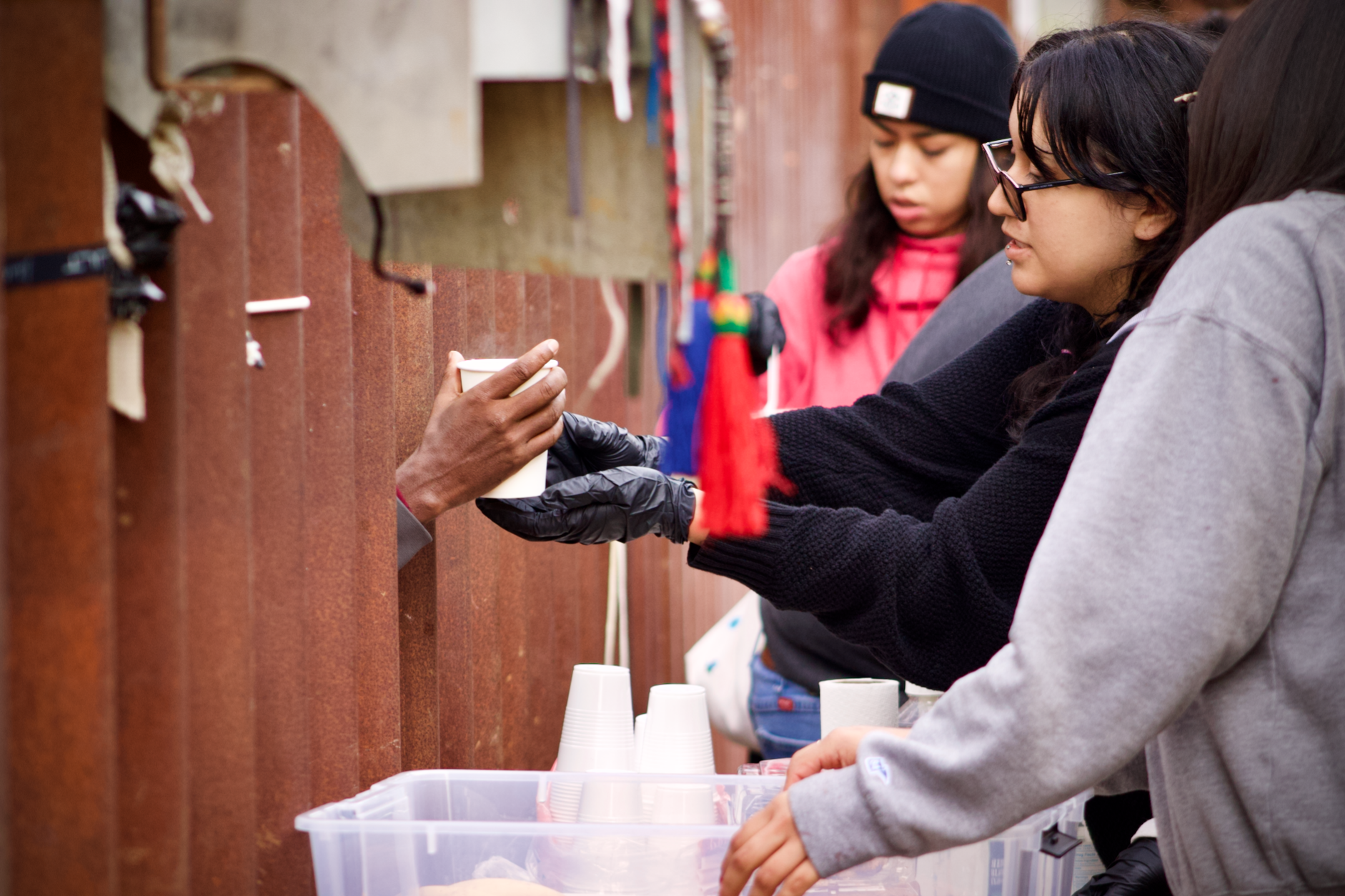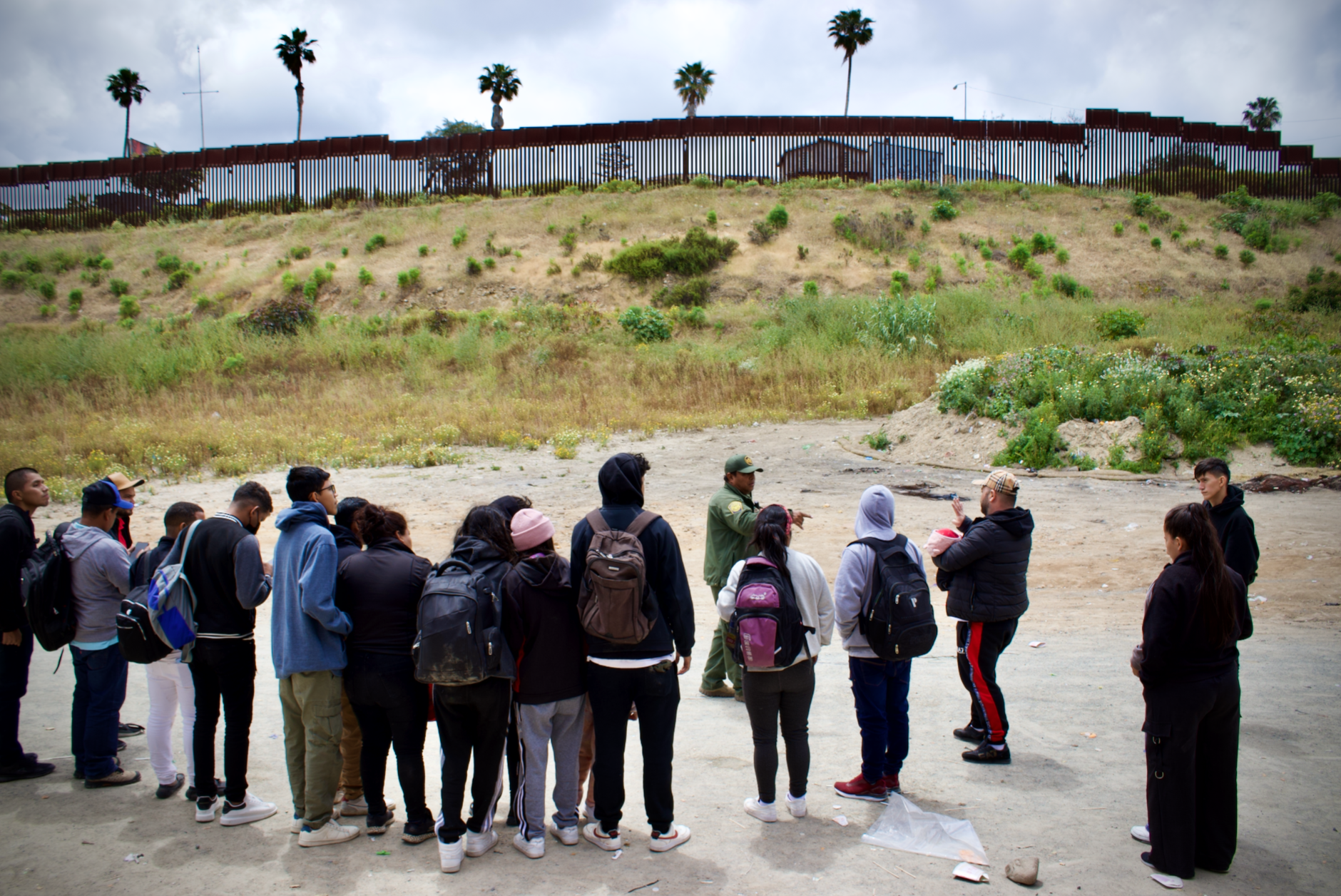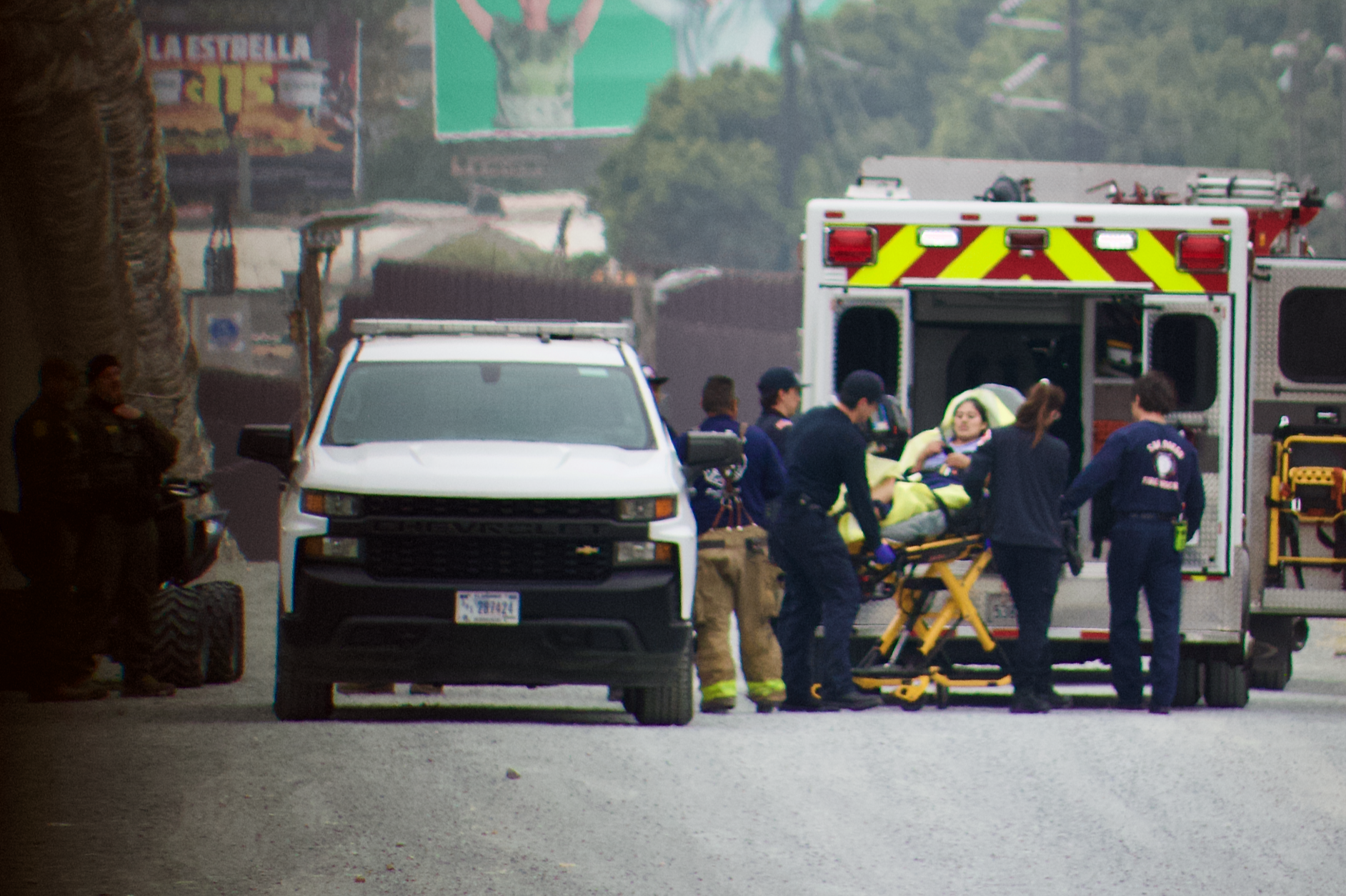
Photo: Pedro Rios/AFSC
Since September of last year, the U.S. Border Patrol has held migrants in open-air detention sites along the U.S.-Mexico border without access to basic services. In that time, thousands of people—including children—have arrived at these sites with little more than the clothes they’re wearing. They are dehydrated, hungry, and sometimes in need of urgent medical attention. Still, many have had to wait hours, even days, before Border Patrol agents pick them up so they can seek asylum in the U.S.
Nearly every day for the past eight months, AFSC staff, partners, and volunteers have provided humanitarian aid at the open-air detention site known as Whiskey-8. It’s located between two 30-foot-tall border walls in San Diego. Through the border barriers, we hand people water, food, and clothing and even tend to their wounds. We also answer their questions and give them information, so they know what to expect when Border Patrol takes them into custody.
Our team usually works two shifts each day at the border. The early morning shift from 5:30 a.m. to 10 a.m. helps people who come overnight. The second shift, from 7 p.m. to midnight, assists those who arrive during the day. In a single shift, we can help anywhere between 20 and 150 people.

It’s hard to imagine what migrants endure to reach the U.S.-Mexico border. Many are from Colombia and other parts of Latin America, but I have also met people who have come from as far as China, India, Uzbekistan, and Guinea. These are people who have traveled hundreds, sometimes even thousands, of miles to get here. They have crossed deserts, mountains, and rivers. Some have been robbed, assaulted, or exploited by human smugglers.
Their journeys are all different, and their reasons for leaving their native countries vary. But they all face hardships as they seek a better life in the U.S. and deserve to be welcomed with dignity, no matter where they come from or how they arrived.
Our humanitarian response team sees firsthand the physical, emotional, and psychological toll of their journeys. A few weeks ago, a 58-year-old woman arrived with dried blood covering the side of her head after falling from the border wall. She had also likely dislocated her shoulder. Still, she refused hospital care, afraid that she would not be processed for asylum if hospitalized. Instead, she simply took the pain relief medicine and ice pack we could offer her.
In another instance, two women from Ecuador arrived with deep lacerations on their legs. They had been ensnared in the concertina wire along the wall. One of the women had hemophilia but luckily had her prescription medication to control the bleeding. The other woman was in severe pain and was bleeding profusely from her thigh. She needed stitches, which prompted us to call for emergency assistance.
Another distressing situation involved a woman who was six months pregnant. She had broken her ankle after falling from the border wall. She also told us she had abdominal pains. But when we called Border Patrol for help, it took agents nearly three hours to respond and take her to the hospital.

In addition to medical care, our humanitarian response team helps people with other necessities. We give food and water to people who may not have eaten in days. We provide dry socks and shoes to people who are soaked after wading through water. We give them a place to charge their phones so they can call their loved ones and let them know they’re OK. And we do what we can to prepare them for the next steps in their journeys.
Border Patrol has a long history of migrant abuse and human rights violations. Through our efforts, we are demonstrating humane alternatives that welcome all people, respect their rights, and treat them with the dignity we all deserve. Our work at the border is made possible by countless people who have generously donated funds and supplies to our efforts. We are grateful to everyone who has supported us.
We will not let up in advocating for Border Patrol to stop holding migrants in open-air detention sites. Last December, AFSC and six other immigrant rights organizations lodged a federal complaint against the Department of Homeland Security’s Office for Civil Rights and Civil Liberties for Customs and Border Protection (CBP) violating their own standards for people under their custody. The 88-page complaint included pages of testimony from AFSC staff and partners about the abuses we have witnessed. Our documentation was also critical in a recent court case over the care of children at these sites. In that case, a judge affirmed that children held at these sites are indeed in CBP custody. That means CBP must comply with standards to ensure the safety and welfare of children at these sites.
Our commitment to stop Border Patrol’s abuses is unwavering. We hope to share more with you about our advocacy efforts in the months ahead. Together, we can push for a future where no one is forced to endure such mistreatment and indignity as they seek a better life.
